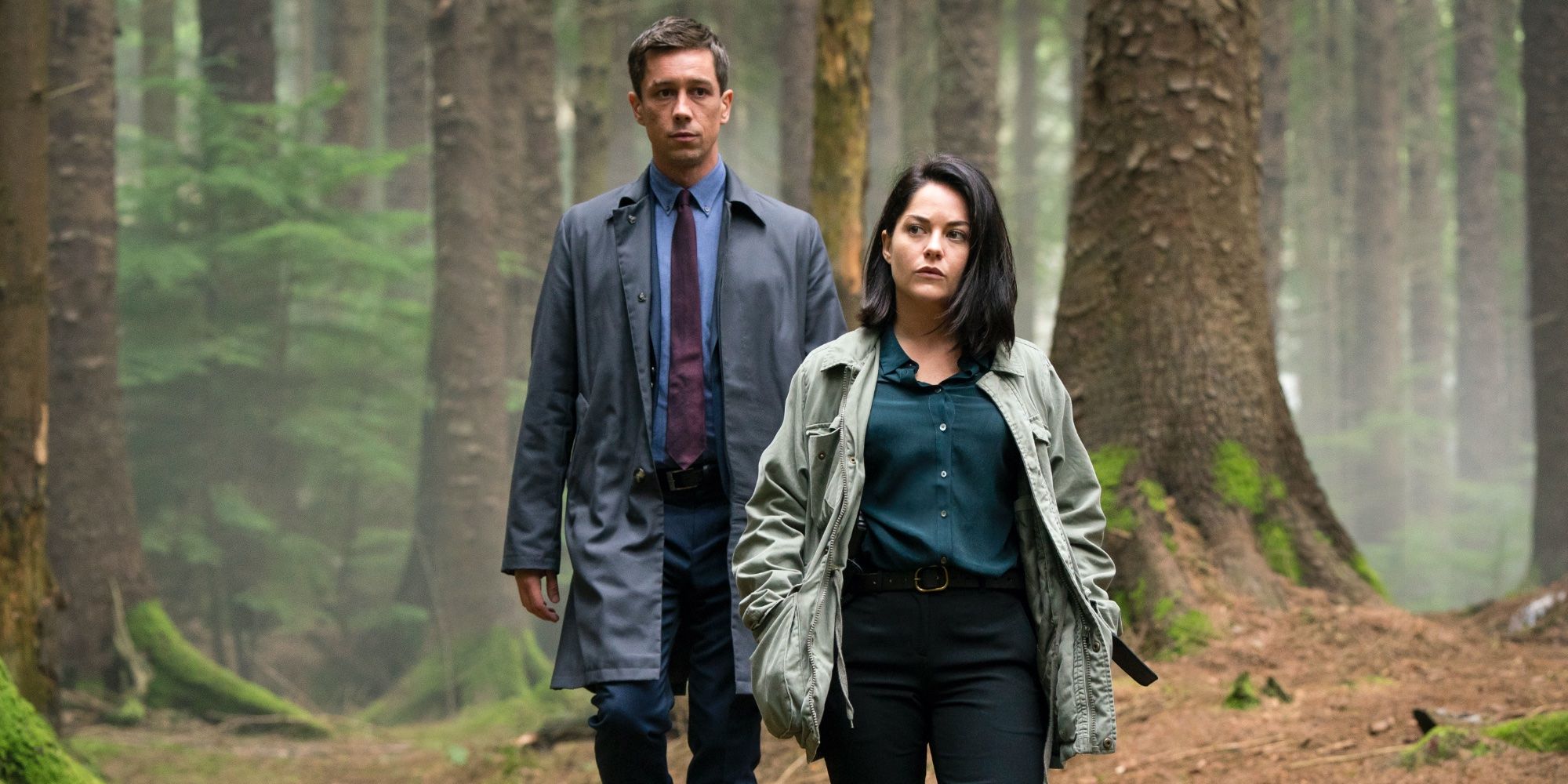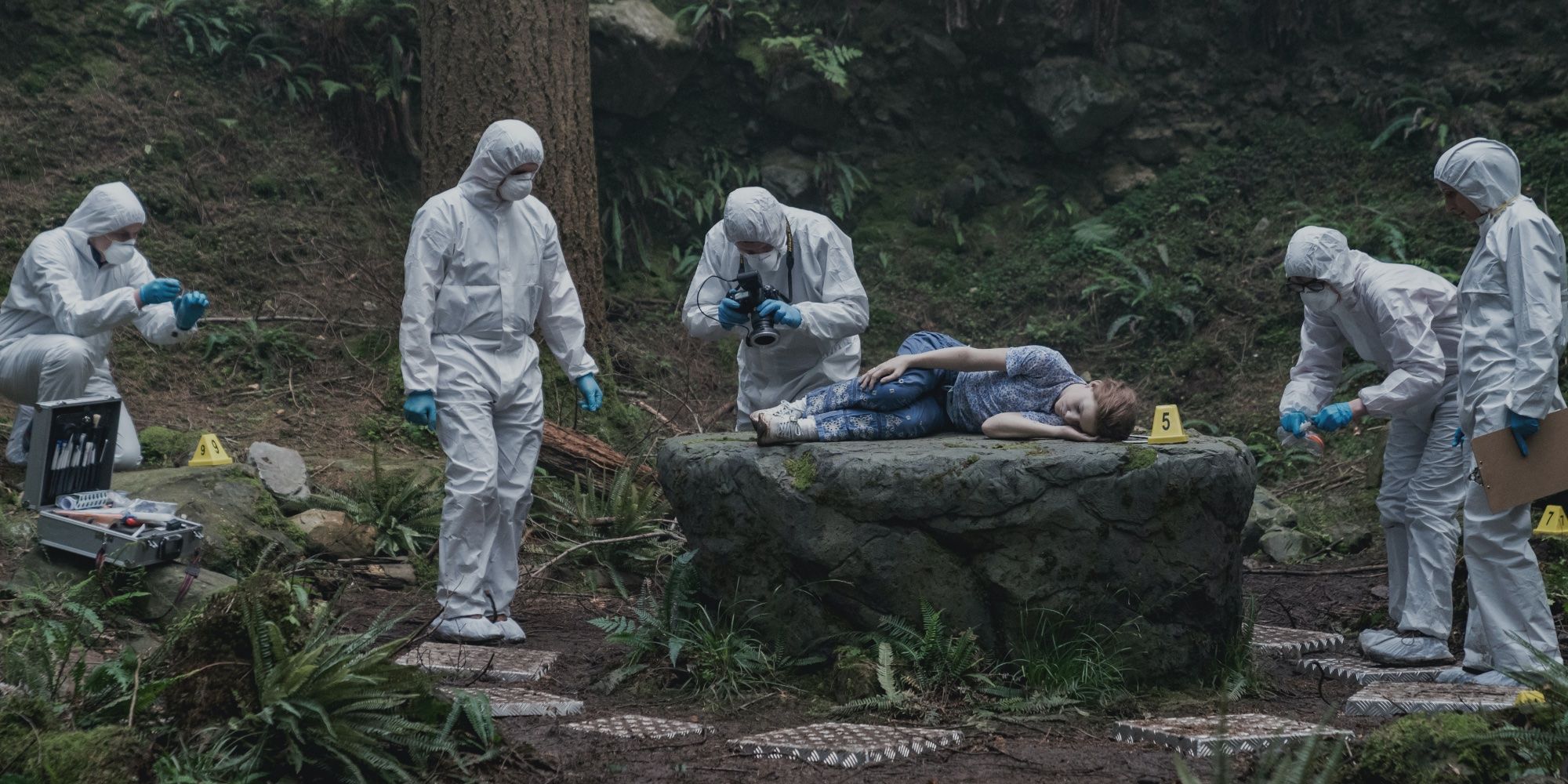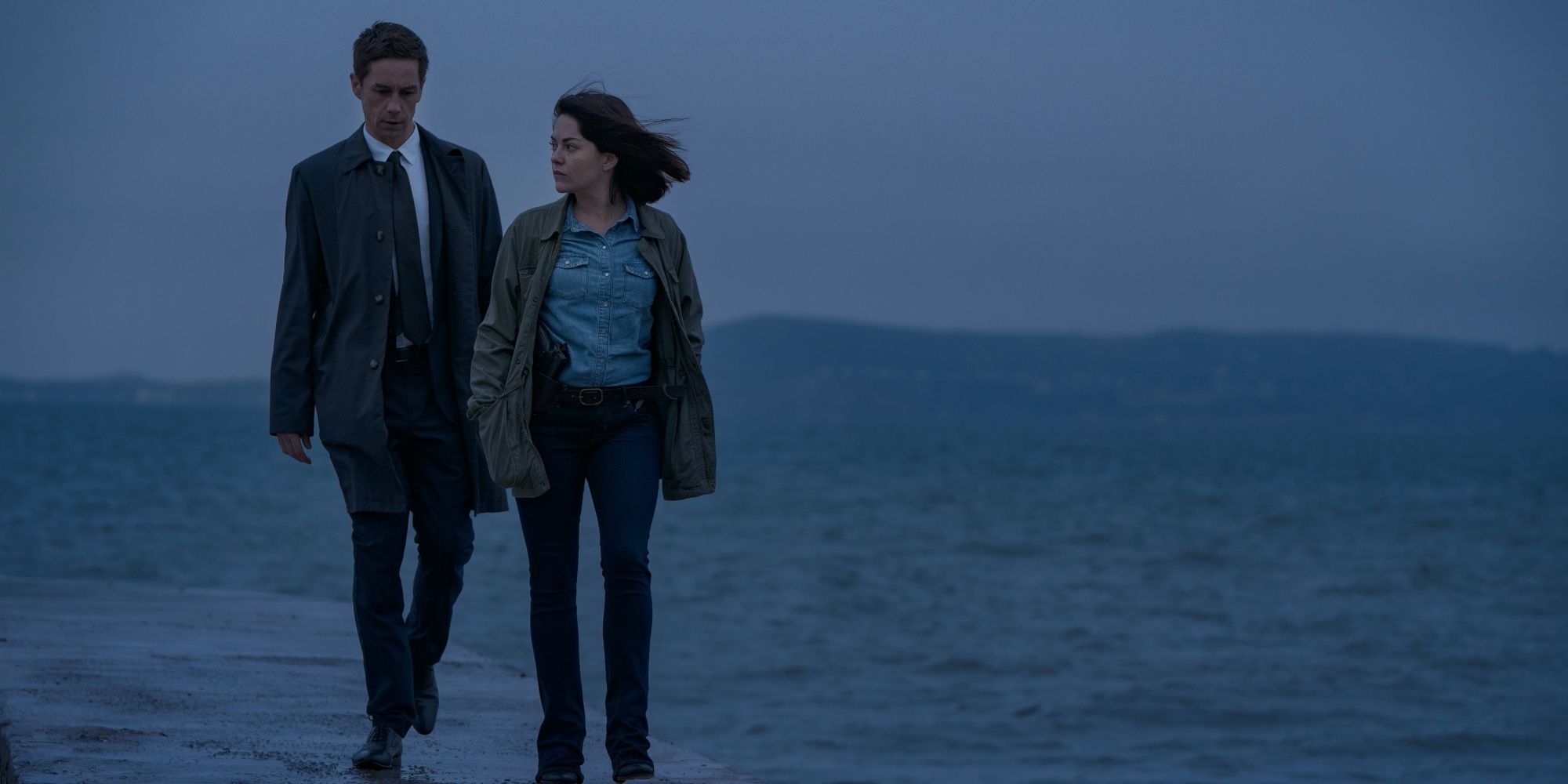As a genre, crime fiction will likely never go out of style. Part of that is the audience’s enduring fascination with the dark side of humanity and the evils that it can produce, particularly when it comes in the guise of a seemingly average person hiding a malignant gloom in plain sight. The idea of a killer concealed among an ostensibly average group of people, particularly in a small town, is a terrifying prospect, one that, when handled properly, can offer thrilling and unsettling storytelling. That’s certainly part of the appeal behind Starz’s upcoming crime drama, Dublin Murders, which isn’t shy about exploring the potential for darkness in every human being.
Though it will likely be compared to HBO’s True Detective, with its dogged cops staring into humanity’s abyss, while investigating the seemingly ritualistic murders of two young women, the series has more in common with David Peace’s Red Riding Quartet, itself turned into the Red Riding Trilogy, which starred Andrew Garfield, Rebecca Hall and more, and told a sprawling story of the Yorkshire Ripper Murders. That comparison makes even more sense as Dublin Murders itself is adapted from Tana French’s series of novels by Sarah Phelps, who has effectively combined the first two books to make a chilling eight-episode season of television.
Phelps most recently adapted a pair of Agatha Christie novels, The ABC Murders and Ordeal By Innocence, into television miniseries that streamed on Amazon in the States. Both stayed true to the conventions of the source material, but offered subtle and not-so subtle changes to keep the audience guessing and add some trenchant thematic elements. As such, Phelps is well-suited to the task at hand here, positioning her two detectives, Rob Reilly (Killian Scott) and Cassie Maddox (Sarah Greene), against a pair of lurid murders that appear unrelated at first. As one case unfolds, however, details tie the two together, embroiling the detectives in a complicated plot that not only digs into Ireland’s past but also their individual histories.
Dublin Murders isn’t out to rewrite the rulebook for crime thrillers or police procedurals, though it does periodically turn certain conventions on their ear to better suit its own needs. At first, those needs are mainly related to atmosphere, which isn’t surprising since the series utilizes a murky gray palate, both in terms of tone and its visual appearance. That much is part and parcel to most murder mysteries, and while Dublin Murders excels in its depiction of both, it’s the show’s fascination with and manner of handling the notion of trauma and obsession, and how the lingering effects of both can ripple through entire communities, that sets it apart from similar programs.
Again, neither trauma nor obsession (or grisly murders for that matter) are particularly unconventional ideas for a crime thriller — Nic Pizzolatto’s HBO series is especially fascinated with mining such concepts for all their worth — but Phelps nevertheless manages to bring a necessary level of humanity and emotional intimacy to the story, as the detectives here aren’t hardened men on the fringe of society, but rather regular people who have, at key moments in their lives, become the victims of circumstance. As such, both Rob and Cassie are hiding secrets, though it’s the former’s that first become a compelling component of the narrative’s sincere interest in identity — personal, familial, and national — and how it ties into the story’s setting.
It’s no surprise, then, that Dublin Murders relies on an exceptionally detailed and studied sense of place. That place is a small town rocked by the unsettling homicide of a young ballerina, whose body was discovered arranged in a macabre tableau, underlining the psychopathy of the killer and placing the already insular town on edge, as they struggle to come to grips with the notion of having a killer in their midst. It’s fairly commonplace stuff, but Phelps manages to weave the basic plot mechanics into an ongoing story of Rob’s troubled past and the estranged relationship he has with not only his family, but Ireland itself. In addition, the narrative moves backwards and forwards in time — not unlike True Detective season 3 — hinting that Rob and Cassie’s investigation leads them down a dark path, leading to irrevocable changes in them both.
In all, Dublin Murders offers a satisfyingly dark and twisty crime thriller, anchored by strong performances from Scott and Greene, as well as a lively supporting role for Conleth Hill, fresh off his stint (or not so fresh given the amount of hair he has on his head) as Varys in Game of Thrones. Hill appears to be having a great deal of fun playing into the conventions of the beleaguered, cranky, and absurdly un-PC police captain that typically roams the precincts of such cop shows. It’s a testament to Dublin Murders, then, that the series can splash around in these familiar waters and still come away with something that feels eerily unlike other contenders in the genre.
Dublin Murders premieres Sunday, November 10 @8pm on Starz.



